West Hartford Reconsidering Purchase of Former UConn Campus, Now Owned by Ideanomics

Audio By Carbonatix
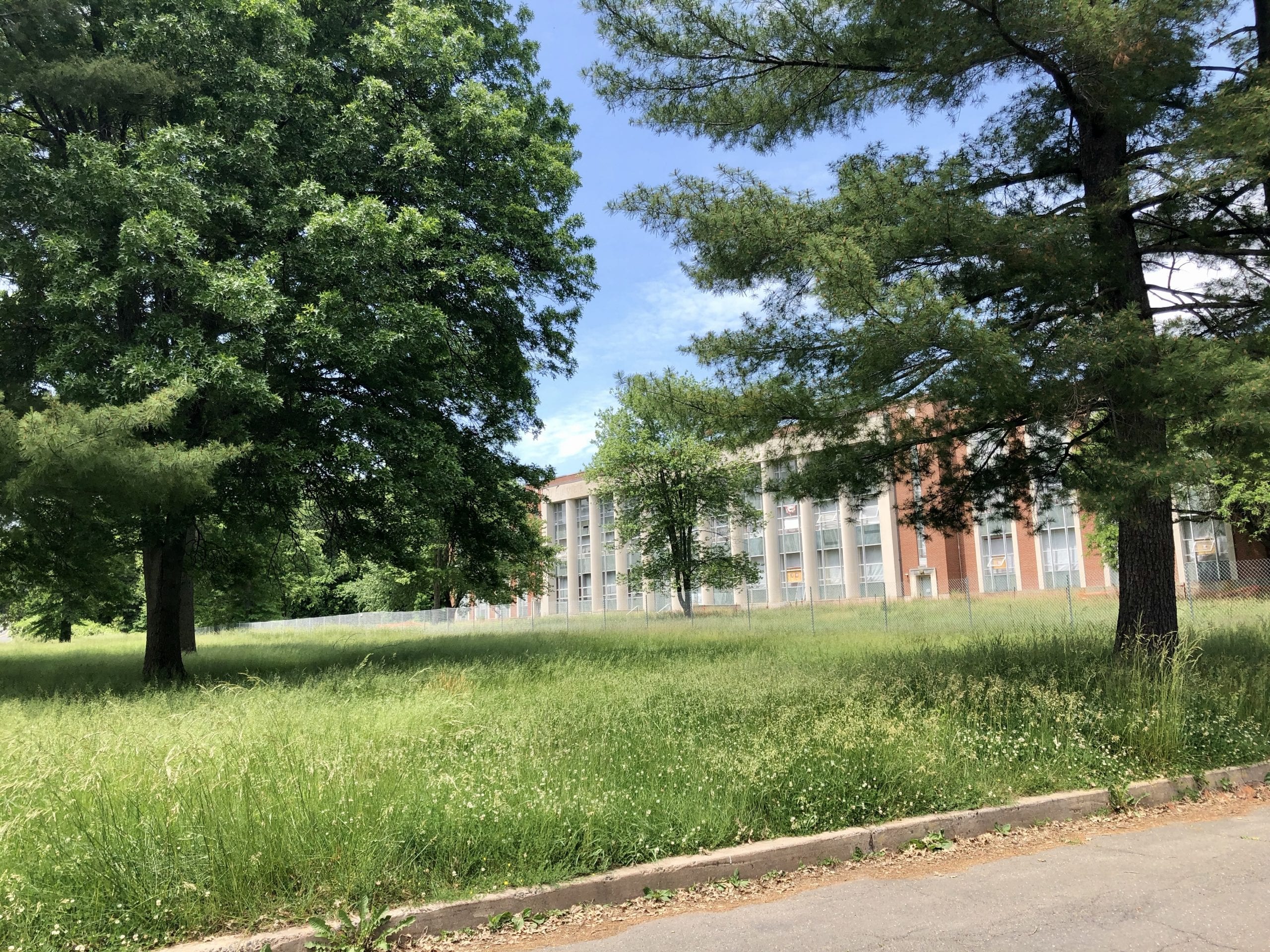
Former UConn Library on the property now owned by Ideanomics at 1800 Asylum Ave. is one of the four remaining buildings on the site. Photo creditL Ronni Newton
The West Hartford Town Council will have six months to decide whether or not to exercise a first right of refusal to acquire the former UConn campus, now owned by Ideanomics/Fintech Village LLC, and during that time will lease the ball fields and maintain the grounds. This story has been updated with input from Ideanomics CEO Alf Poor and Mayor Shari Cantor.
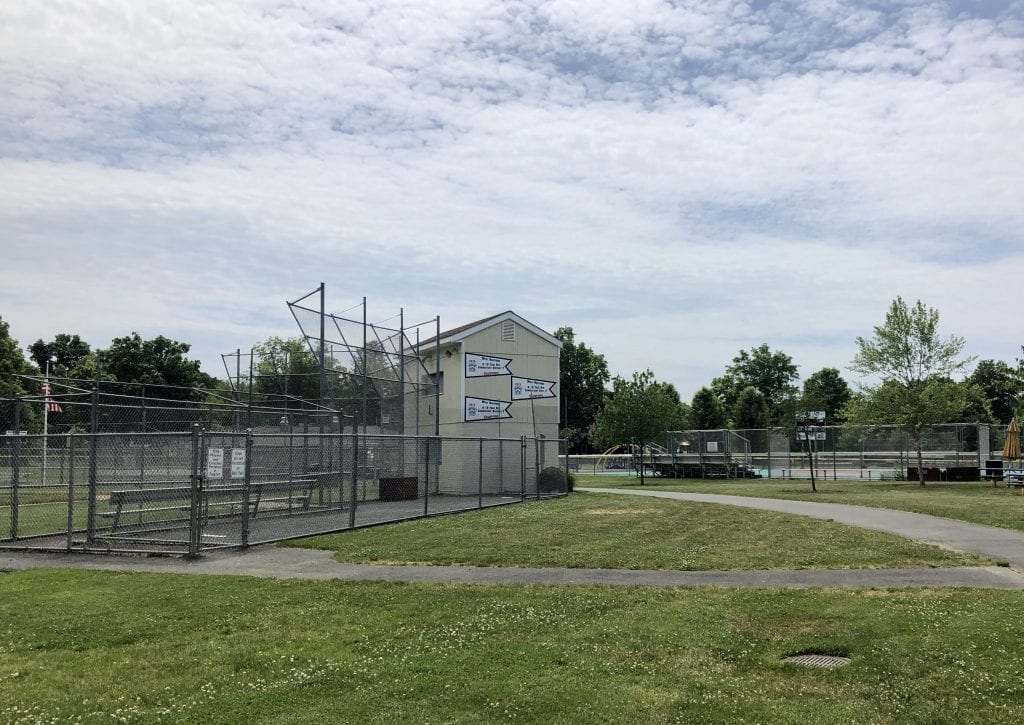
The West Hartford Little League and Miracle League have ball fields at the former UConn campus, now owned by Ideanomics, at 1700 Asylum Ave. Photo credit: Ronni Newton (we-ha.com file photo)
By Ronni Newton
[Updated, Wednesday, June 24]
Fintech Village, the global technology center proposed by Ideanomics for the 58-acre former UConn West Hartford campus at 1700 and 1800 Asylum Ave., will not be going forward as planned and instead the Town of West Hartford will once again consider purchasing the entire property during a six-month due diligence period agreed to unanimously by the Town Council Tuesday night.
The resolution (see complete document below) gives Town Manager Matt Hart authorization to: execute a new lease for the ball fields for six months, with a built-in six-month extension; to enter into an agreement with Fintech Village for a right of first refusal to acquire the property; and to take over maintenance of the 1700 Asylum Ave. and 1800 Asylum Ave. property, at town expense, for the six-month period.
Although the town has been mowing a strip of the property along the perimeter, area residents have complained of the blighted appearance of the overall parcel, and have been voicing concerns about maintenance, particularly the un-mowed grass, which they claim has become home to rats, snakes, raccoons, ticks, and other creatures. The maintenance agreement will apply to the open land, but not to the contaminated areas located behind fencing.
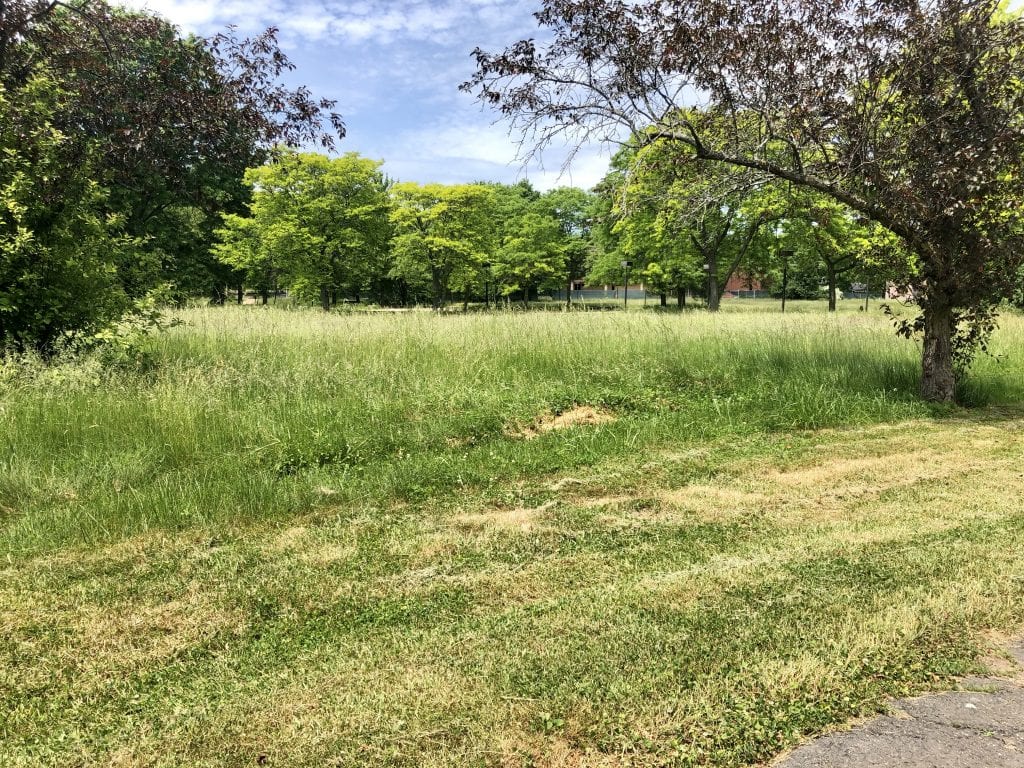
The former UConn West Hartford campus, purchased by Ideanomics in October 2018 for the purpose of building Fintech Village, sits largely unattended other than a strip of lawn mowed by the Town of West Hartford. Photo credit: Ronni Newton
The cost of the lease for the ball fields will be $1, and the consideration for the contract with Fintech granting the right of first refusal is $10 – as well as the commitment to maintain the property for the next six months.
Under the terms of the right of first refusal, Hart said, “The town would have the ability to match any offer that Fintech Village might receive to purchase both parcels, as well as an offer they may receive to purchase one of those parcels individually.”
The resolution also authorizes expenditure of $189,000, of which $39,000 is for the cost of mowing and other necessary landscaping, which will be done by an outside contractor, and $150,000 for professional services, including hiring of outside legal counsel which will be provided by Robinson & Cole. The funds will come from an existing balance in the Capital Non-Recurring Expenditure Fund.
Hart said that during the six-month due diligence period, environmental remediation work that has already been done on behalf of Fintech Village will be reviewed, and further analysis may be done if required. Negotiation of the price the town would need to pay to acquire the property will take place during that six-month period as well, he said, after which a recommendation will be made to the Town Council.
One of the five buildings on the former campus has been demolished, and some degree of remediation of polychlorinated biphenyls (PCBs) and asbestos has taken place in other buildings. Hart said the cost of the work that had been planned and has not yet been completed by Fintech Village is estimated at $4.5 million, but the town would want to determine independently whether or not it would be best to demolish three of the four remaining buildings as Ideanomics had intended.
“What’s spurring our interest in part, if you look at [Ideanomics’] official financial statements this property is now a non-core asset,” Hart said. The fact that the company has indicated that plans to build Fintech Village has been stalled indefinitely is of concern to the town.
In both its year-end financial report released in March, as well as in the company’s recent first quarter financial report, released in May, Ideanomics stated: “The company has identified Fintech Village as a non-core asset and is evaluating its strategies for divesting of this asset.”
The most recent financial report noted that the company is shifting its focus from financial services to the Electric Vehicle sector, and Ideanomics has been publicly sharing its success in the Chinese EV market.
In March, Ideanomics CEO and Fintech Village President Alf Poor told We-Ha.com that the company was seeking potential partners for the project. Hart said that it was a mutual decision between the town and Ideanomics to begin crafting the new agreement.
Poor told We-Ha.com Wednesday morning that when the company was first looking at the property, and when it was purchased by Ideanomics (then known as Seven Stars Cloud Group) in 2018, they were able to attract large-scale interest from Chinese companies – but by December 2018 the flow of Chinese cash into U.S. investments stopped.
“As we got into it, EV became an exciting market,” Poor said. “This was a big, multi-year project. We haven’t been able to give it our time or resources.”
Poor said there were four or five active discussions with potential partners, but then the coronavirus pandemic hit and that stopped.
“This has been a lot of work by town staff in a short period of time,” Mayor Shari Cantor said late Tuesday night, following the Council’s discussion of the resolution in executive session, adding that she is is looking forward to moving ahead with plans for the property.
“For a variety of reasons, Ideanomics has altered its plans to focus on other aspects of its business, and it appears that Fintech Village as originally envisions will not move forward,” Cantor told We-Ha.com on Wednesday. “While discussions with Ideanomics are continuing, we needed to take this important next step which allows us to represent the community and protect the precious recreational assets while we determine what, specifically, the future will hold for this parcel.”
Cantor also noted that ensuring the ball fields and playgrounds – which provide recreational opportunities for children, including those with cognitive and physical challenges – remain available for use by the community will continue to be a top priority for the Council.
Hart told We-Ha.com that it’s premature to discuss the eventual use of the property, but it does not appear that Ideanomics had success finding a buyer or partner. The challenges associated with the property, in addition to the fact that much of it is wetlands, include the need to complete remediation as well as the fact that the property is zoned for single-family residential, and any potential buyer would have to weigh the town’s willingness to amend the zone.
“Let’s secure the property, and then take the time we need to look at the various redevelopment options,” Hart said, noting that this will be a multi-year project.
Hart said one of the primary goals is to preserve the four ball fields that the town has built and have been in use for the past 20 years, “especially the Miracle League field and maybe add some other recreational uses on the east side.” The lease for the fields, which expires on June 30, 2020, creates urgency in that matter, and the town wants to control the fields long-term.
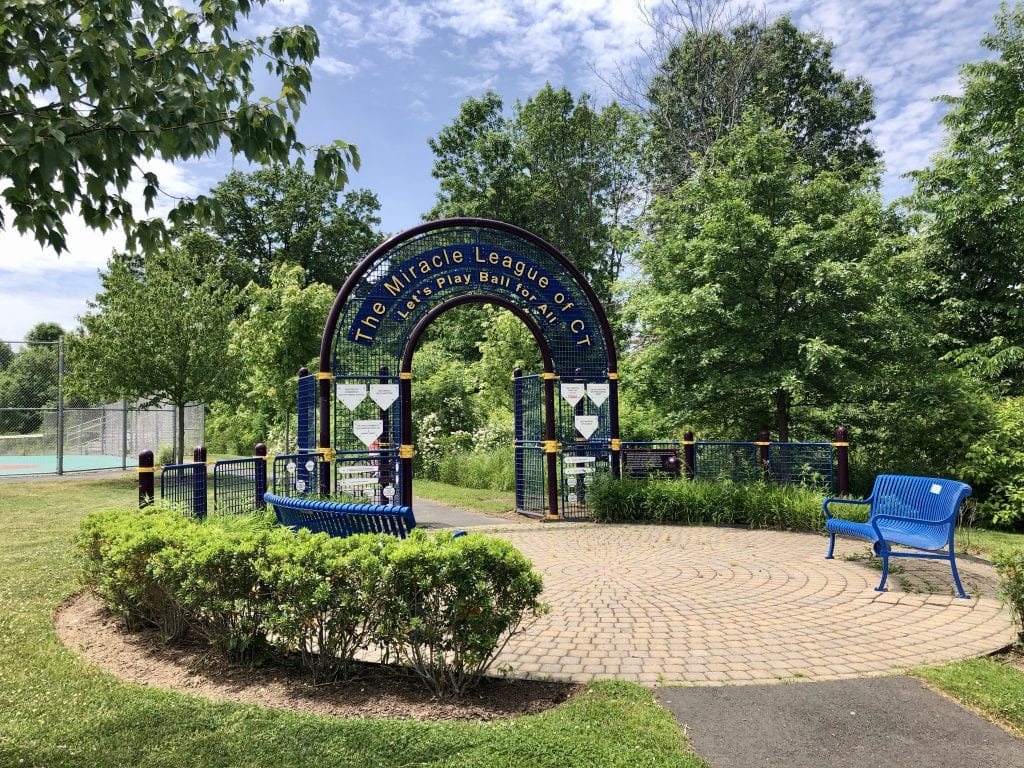
Miracle League of CT accessible field on former UConn campus, now owned by Ideanomics. Photo credit: Ronni Newton
Hart said the town is in a different place than it was several years ago when the Council decided not to purchase the property. “We really hoped it would come to fruition, but it hasn’t,” he said of the Fintech Village project, which was celebrated with great fanfare in July 2019.
A good deal of environmental work has been done on the site, Hart said, but he is concerned that the property could languish, particularly if Fintech Village were to declare bankruptcy.
Despite the grass being un-mowed and the cosmetic appearance, Poor said the property, which was in a “sorry state” when Ideanomics purchased it, is in better shape now.
“The remediation plan has already been approved by DEEP [the Department of Energy and Environmental Protection] and the EPA,” he said. “We’ve done the heavy lifting.” And the asbestos and PCB remediation that has been done thus far was conducted in the most expensive and careful way possible due to the location in a residential neighborhood and wetlands considerations.
“It’s a great property, in a strategic area for the Town of West Hartford,” Poor said. At this point, he said, “the town is the best custodian of the site,” he said, particularly because of the ball fields which are very precious to the town and need to be part of any development plan. “It was always going to be a tricky property.”
Poor said Ideanomics has spent a lot of money already. He confirmed that the taxes (the most recent bill was $234,396.10 for both parcels) are up to date, and the company did not receive any money from the state that was promised by the administration of Gov. Dannel Malloy for the creation of jobs.
“It’s bittersweet,” Poor said. “We wanted to a do a project but as time went on we adjusted our business. EV is doing well,” he said, and it’s now the company’s growth engine.
“[Mayor] Shari Cantor, [Town Manager] Matt Hart, they’ve been rock stars,” Poor said in working out this deal.
Poor said all of the data that Ideanomics has developed regarding the site will be made available, and the company will help shepherd the town through the upcoming process.
“With appropriate zoning of the property we think it would have tremendous value,” Hart said. The location is of strategic importance to the town and the region, and could add to the town’s grand list value and also possibly have municipal use.
“You’re not agreeing today to purchase this property – what you are agreeing to is a lease for the ball fields and that you are wiling to take another look at the property,” Hart told the Council, as well as agreeing to maintain the property.
UConn announced its plans to relocate its Greater Hartford campus downtown in 2012, and although the town ultimately chose not to purchase the campus several years ago, it undertook a robust community engagement process to develop a vision statement for the property, which was adopted by the Town Council in April 2018.
Ideanomics purchased the 58-acre former UConn campus “as is” for $5.2 million in October 2018, with the intention of to building Fintech Village – a $400 million center for global technology and innovation – on the property. They committed to assume all responsibility for remediation of the contamination which occurred when the state owned the property and constructed the buildings for UConn.
Ideanomics had been asked to post an $8 million surety bond to secure the company’s obligations to complete the environmental remediation, a bond that was secured with approximately $4 million of collateral.
In June 2019, UConn’s Board of Trustees agreed to substitute a performance bond for the surety bond, allowing Ideanomics to use the nearly $4 million collateral to finance the environmental remediation, allowing that work to commence.
During the six-month due diligence period, Hart said, agreements related to the remediation will be reviewed.
Although there is some reluctance for municipalities to get involved in the chain of title for a property of this type, there are now tools available that would afford the town greater protection against environmental liabilities, Hart said. Those tools include insurance policies as well as liability relief for Brownfield sites.
For information and background about West Hartford’s previous history with the campus, the purchase plans, and interviews with Ideanomics principals, click here.
Like what you see here? Click here to subscribe to We-Ha’s newsletter so you’ll always be in the know about what’s happening in West Hartford! Click the blue button below to become a supporter of We-Ha.com and our efforts to continue producing quality journalism.
 Loading...
Loading... 

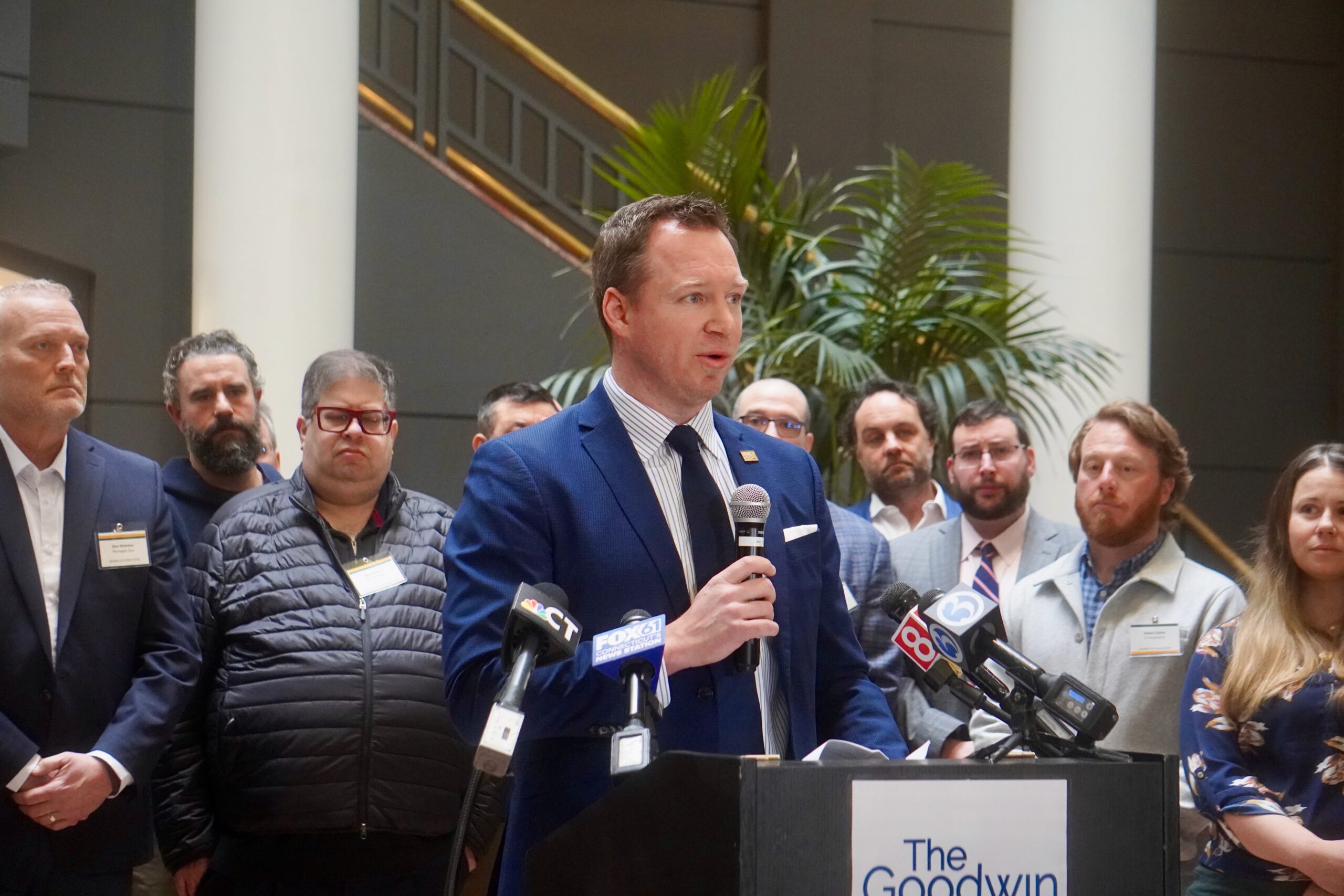
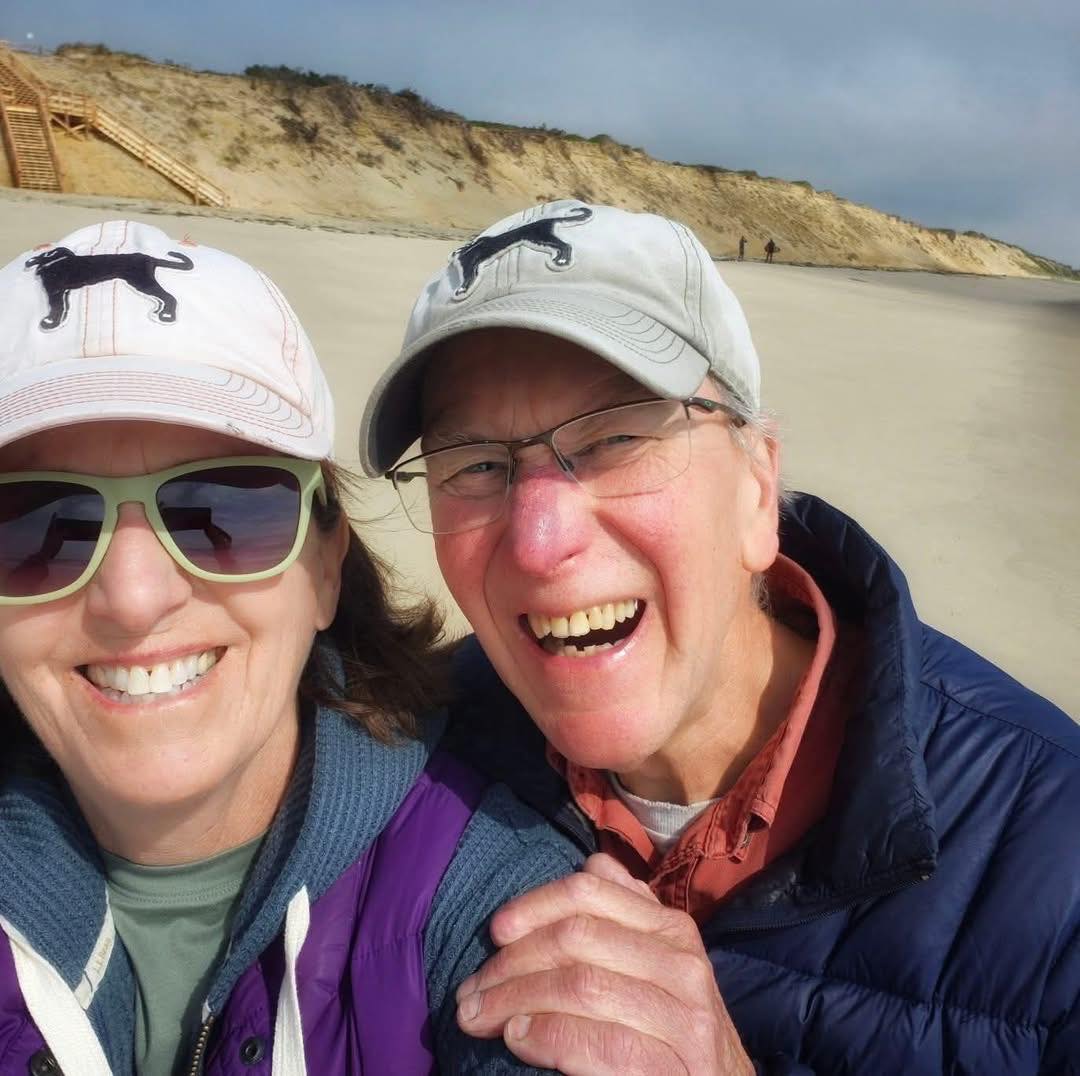
This property should have been purchased by the town in 2018 if for nothing else to provide practice and game facilities for the kids. Nearly all youth sports have few options with regard to practice and game facilities. The West Hartford Youth Basketball League has steadily lost both school gyms and donated gyms over the past several years. Volunteers are left to figure it all out with no commitment from the Town of West Hartford. It could be a sports facility mecca in a fully developed town. All youth leagues and our town would win.
There used to be a huge boulder on St. Joe’s campus. And I mean huge. You could hardly miss it driving by. The lonely megalith, a glacial relic perhaps, highlighted a magnificent swath of pristine grass field stretching the length of Albany Ave.
Over the years, the boulder disappeared. No idea how they managed to move it, or where it went. A track was laid down in the field, then a baseball diamond, tennis courts, and, most recently, a soccer field. It’s in front of St. Mary’s, but presumably for St. Joe’s (no nuns spotted playing yet).
While the undeveloped field was nice to look at, once upon a time, the school takes care of what it has built since then.
Thus my roundabout way of getting to the point. That field has pretty much run out of space for new future projects, and the UConn site just happens to be next door to St. Joe’s. Don’t know the details of what all exactly St. Joe’s owns on its western flank, but basically, the UConn site is an uninterrupted-ly direct neighbor.
So…how about getting St. Joe’s to purchase the UConn site? They already know how to take care of a big field and keep it mown and tidy. It’s next door, so it would make perfect sense for them, and you’d have to think they might be in a financial position to finagle the funds for the purchase, cleanup, and upkeep.
And perhaps, in the process, get a long-awaited dog park in there somewhere. While I personally am dog-less, it’d probably be a big hit, and there’s likely spots it could be located where barking dogs couldn’t be heard by neighbors.
Long story short: if the town can’t/won’t buy it, then St. Joe’s, please acquire this site! WeHa could make a big stride toward its motto, “Where City Style meets Village Charm”. (OK, I had to look that up.)
I was wondering if you received any information from the town on why they need to spend an additional $189k to assess the uses and environmental impacts of this property when they spent considerable funds during the due diligence–I think around 500k (250K nonrefundable deposit and about 230k of legal and consulting fees). Also I believe the town spent money on a creating a vision statement about this property.
[…] late June, the Town Council approved a resolution, which took effect July 1, allowing Hart to enter … should there be an offer on the property. The agreement also allowed the town continued use of the […]